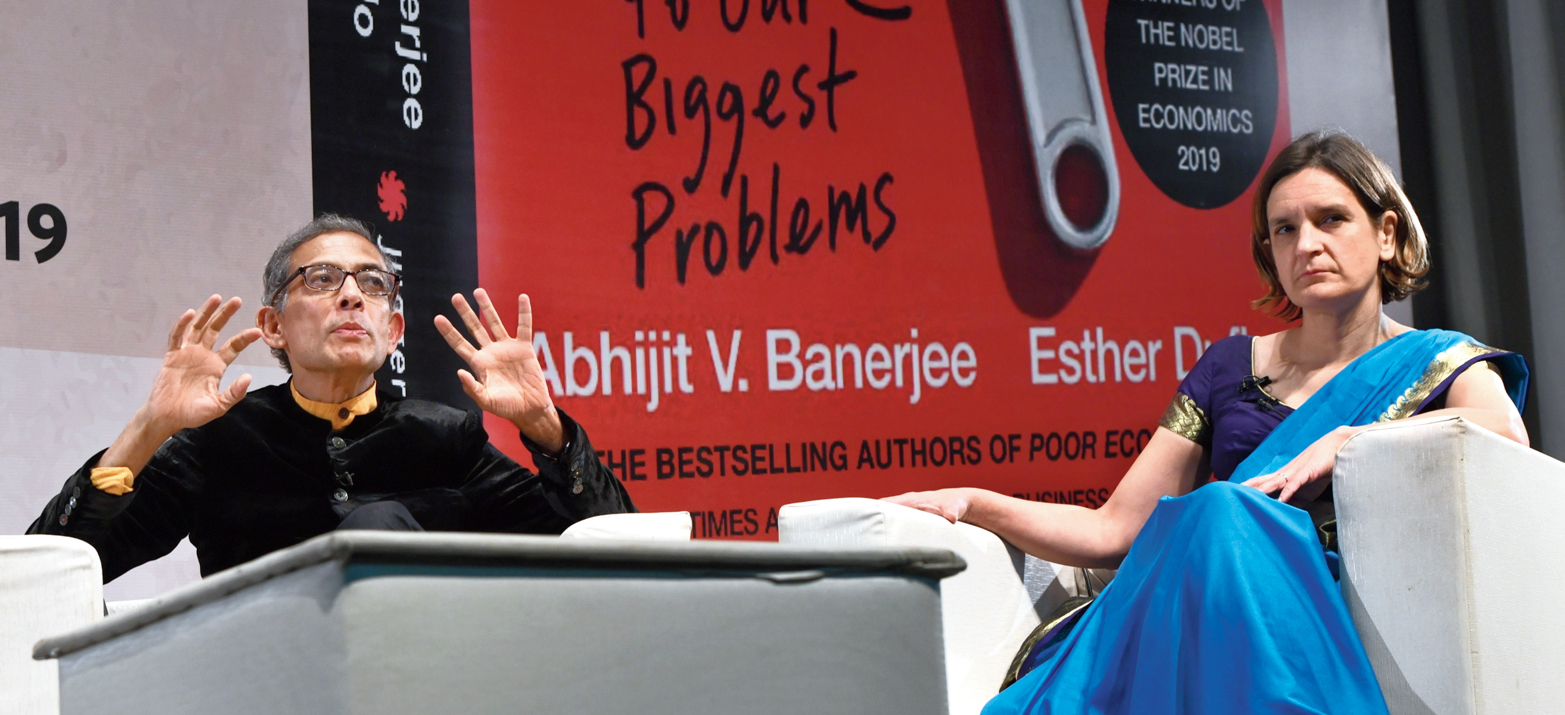India’s proposed new citizenship regime could engender “frightening” power structures that might make some people across communities vulnerable to the threat of extortion, economics Nobel laureate Abhijit Vinayak Banerjee cautioned on Friday.
Banerjee, speaking at a public event in New Delhi, was prompted to say something about the nationwide agitation against the Citizenship (Amendment) Act and the National Register of Citizens. He said the potential for the abuse of power was worrying.
“One thing worries me from my experience doing field work. When you have somebody who has an enormous amount of power — the guy who decides whether or not you will be on this list or that list, he has a lot of power — forget about religion (being the sole criterion for vulnerability),” he said.
“Many things you could be worried about. If I were somebody living in a border district, I would be petrified by that thought. Just the fact that somebody could come and say, ‘I’m in charge of making the list and could put doubtful next your name, or I could not — if you pay me 10,000 rupees’.”
His comments come amid protests across the country against the citizenship amendment that gives non-Muslims from Afghanistan, Bangladesh and Pakistan a quick route to Indian citizenship and the NRC, which the Centre says is intended to weed out illegal immigrants.
Banerjee, an MIT professor, shared the 2019 economics Nobel with Esther Duflo, a fellow economist and his wife, and Michael Kremer from Harvard University for their work to alleviate poverty and improve human welfare.
Banerjee and Esther Duflo, his wife and fellow economic Nobel laureate, on Friday made their first joint appearance after winning the prize at a public event in India — a conversation with TV personality Prannoy Roy at the Siri Fort auditorium in front of an audience of around 400 people.
“It seems to me you should worry about creating structures where people have so much to lose. If you’re not a citizen of India and no other country wants you, who are you?” Banerjee said.
“Creating power structures that make people so vulnerable… you could be extorted. As a governance problem, it is frightening.”
Banerjee and Duflo also provided insights into their use of randomised control trials, a concept borrowed from medicine, to address poverty, health and human development issues. They fielded questions from the audience, largely on economics but one on climate change.
Duflo, responding to the climate change question, said there was a need to consume differently and consume less in the developed countries. “We are creatures of habit, but it is possible to change,” she said.










